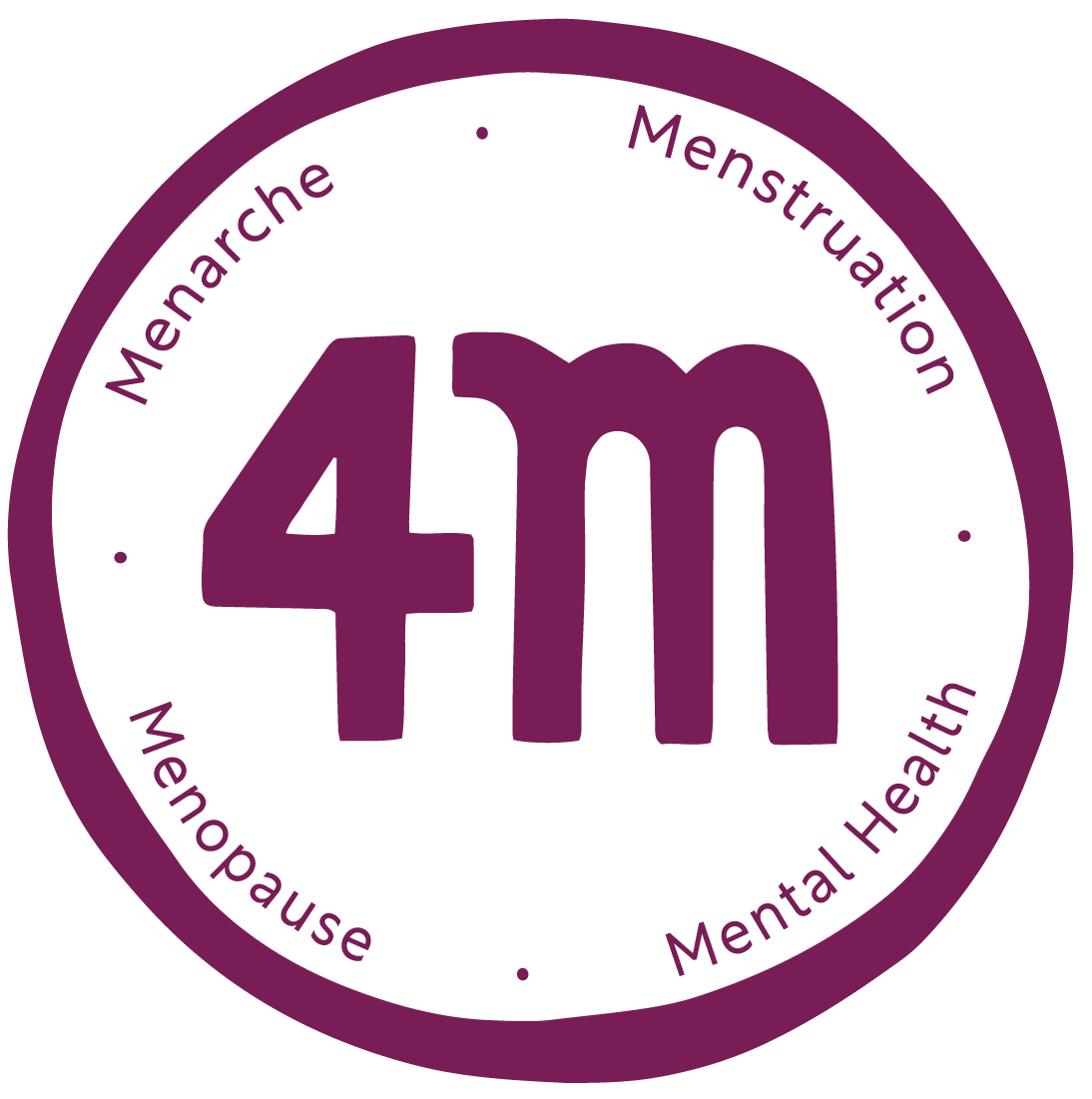October is Menopause Awareness Month, and today, Wednesday 18th October, is World Menopause Day! Did you know that Menopause is one of the 4Ms? It sits alongside Menarche, Menstruation and Mental Health. Here at 4M we facilitate research at the intersection of reproductive health and mental health. For World Menopause Day we thought we would take the opportunity to showcase projects led by 4M members that are furthering our understanding of menopause, and how it interacts with mental health.
Over the past year we have seen a big movement when it comes to menopause, we are hearing and reading the word more and more, as we try and tackle the stigma associated with menopause and make it less taboo, because after all it’s a natural life stage for women. Although it has been fantastic to see more awareness about menopause, it still remains a poorly understood and underfunded area of research. At 4M we have members addressing this evidence gap – keep reading to find out more!
For World Menopause Day we will introduce you to two projects on menopause led by two 4M members in collaboration with other colleagues. During Menopause Awareness Month we will be uploading more information about these projects on our website, so keep an eye out if you’re interested to find out more!
Meno2Mind | Associations of menopause transition and menopause pharmacotherapies with mental disorders
Let us introduce you to Dr Alexis Cullen from King’s College London and the Karolinska Institute. Alexis is a research fellow within the Department of Psychosis Studies, Institute of Psychiatry, Psychology & Neuroscience at King’s College London and Researcher in the Division of Insurance Medicine, Department of Clinical Neuroscience at the Karolinska Institute.
This year she has set-up and led a large evidence synthesis project: Meno2Mind. It consists of sequential review projects designed to identify gaps in the current evidence base and determine the extent to which menopause transition and pharmacotherapies for menopause are associated with onset, exacerbation/improvement, and treatment of mental disorders.
There will be three core phases to Meno2Mind:
1) A scoping review to track the publication of studies examining the association between menopause transition/menopause pharmacotherapies and mental disorders and to identify gaps in the literature.
2) A series of systematic reviews and meta-analyses which address research questions identified from the scoping review. The reviews will focus on specific exposures (e.g. early menopause), mental disorders and study designs.
3) An umbrella review of systematic reviews examining the association between menopause transition, menopause pharmacotherapies and mental disorders.
Collaborators on this project include Claudia Cepeda-Lopez, Susan Mylchreest, Mahira Budhraja, Jo Burgin, Laura Hanley, Lynsay Matthews, Yvette Pyne, Thomas Reilly, Gemma Sharp.
You can find out more here and you can read the protocol for the ongoing review here.
Improving future treatment options for menopausal symptoms by using genomics to understand aetiology
Professor Anna Murray from the University of Exeter, is an expert in the field of reproductive genetics, and has recently been awarded an MRC grant to investigate the genetic links of menopause symptoms. The project aims to understand what causes menopausal symptoms and why women have different symptoms, to ultimately inform the direction for new drugs that could be used to treat these symptoms in those who experience them. Understanding what genes are linked to different symptoms, will help identify what symptoms could be treated by the same drugs (i.e. if they share a genetic link) and which may need alternative therapies.
They aim to achieve this by combining three approaches:
1) developing a bespoke survey;
2) using existing information from other studies;
3) using electronic healthcare records linked to study participants.
By combining these methods the project will include more than 700,000 women in total!
This study has the potential to advance much needed knowledge on what causes menopausal symptoms, why women experience different symptoms, what treatments may be most effective and highlight new drug targets.
Collaborators on this project include Julia Prague, Kate Northstone, Martha Hickey, Abigail Fraser and Kate Ruth.
During Menopause Awareness Month we will be uploading more information about these projects on our website, so keep an eye out if you’re interested to find out more!



